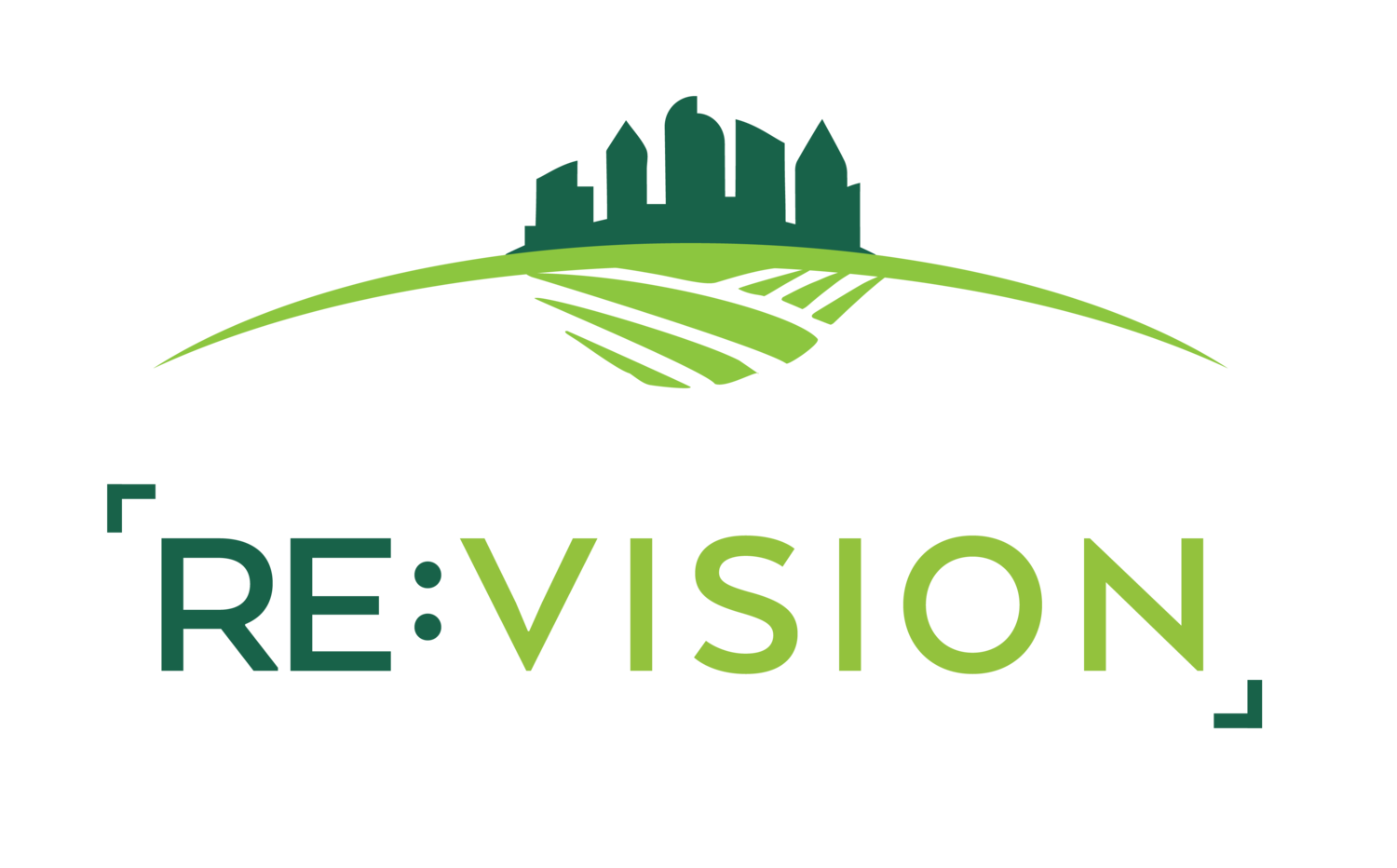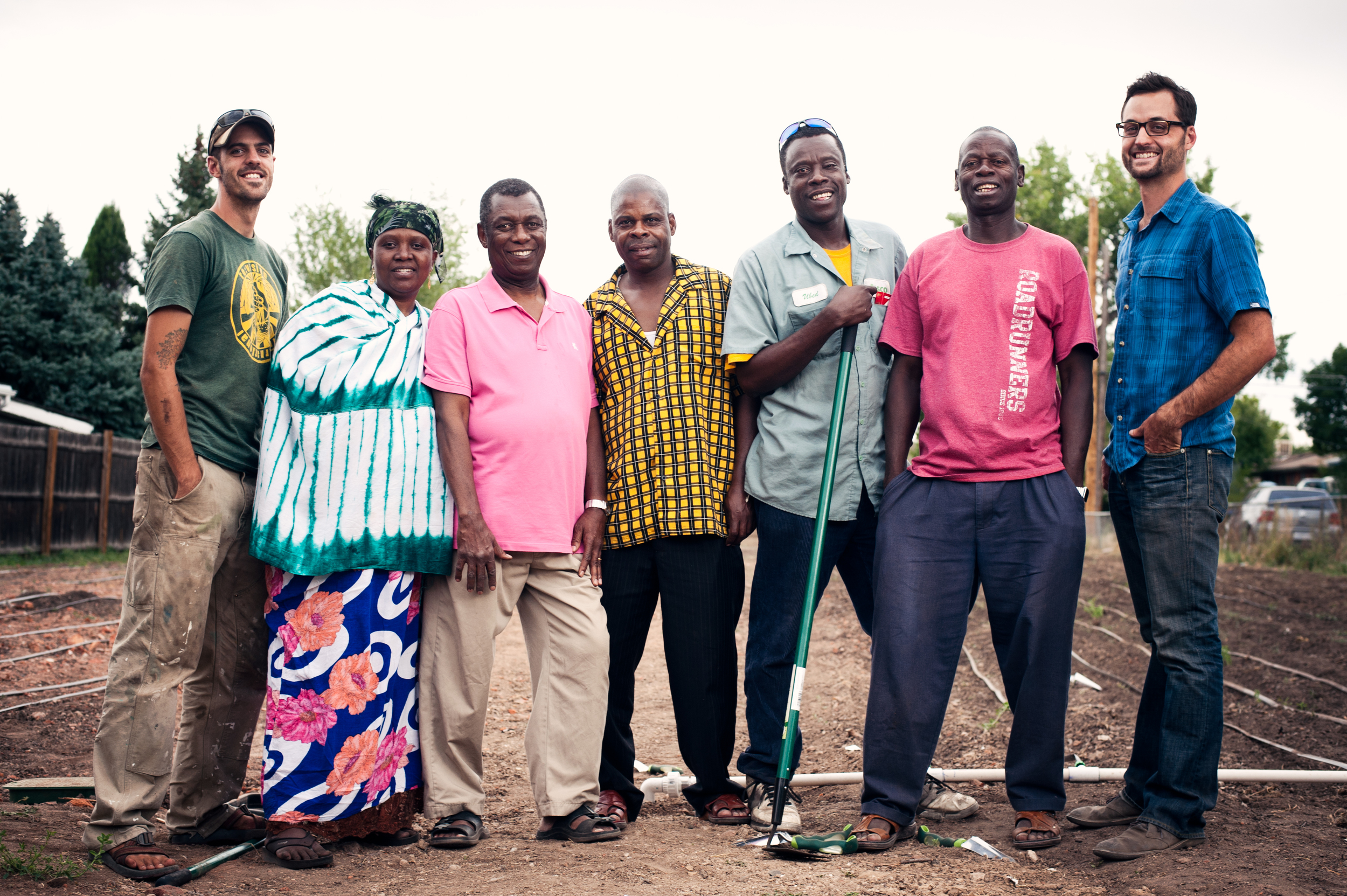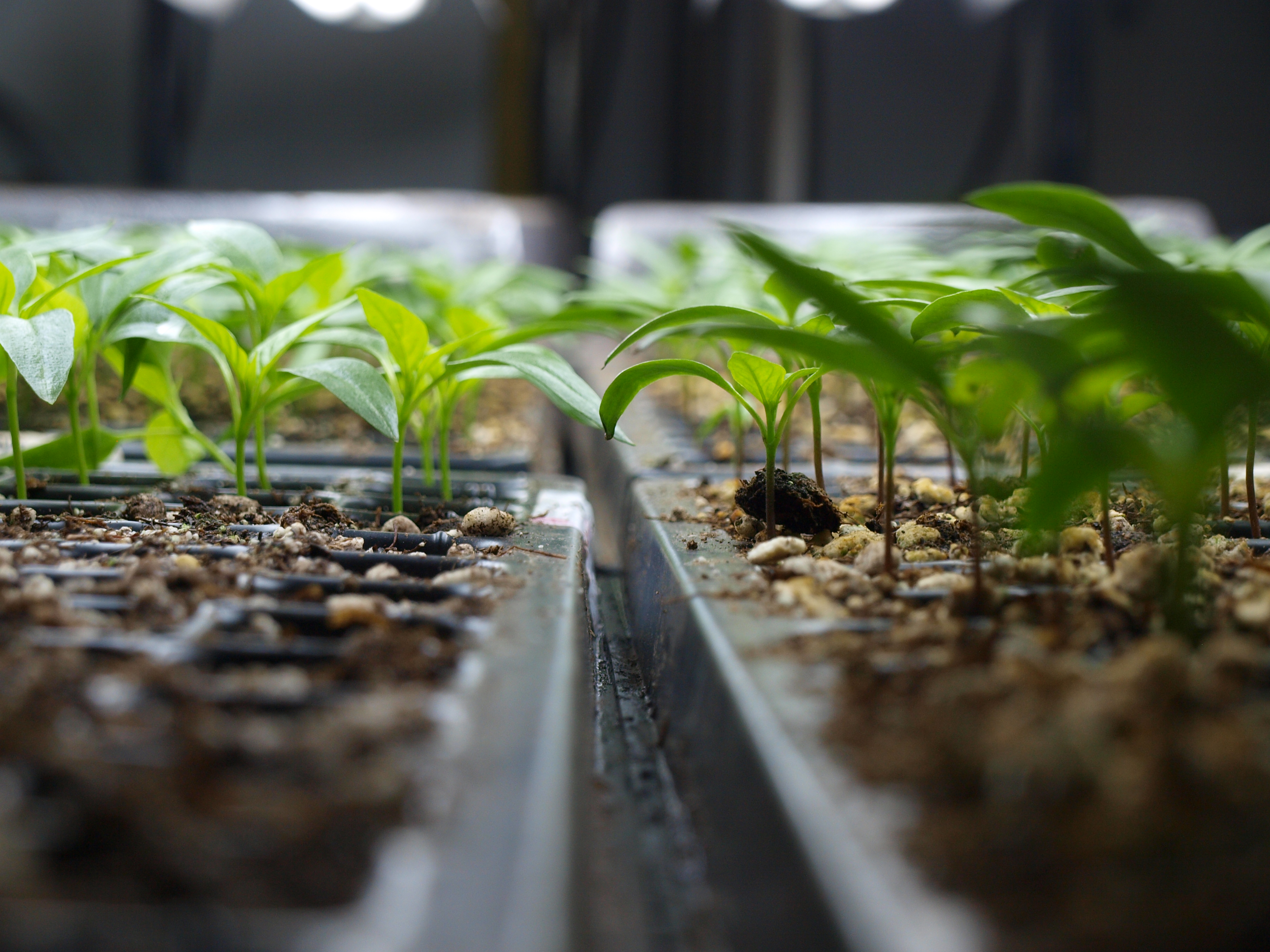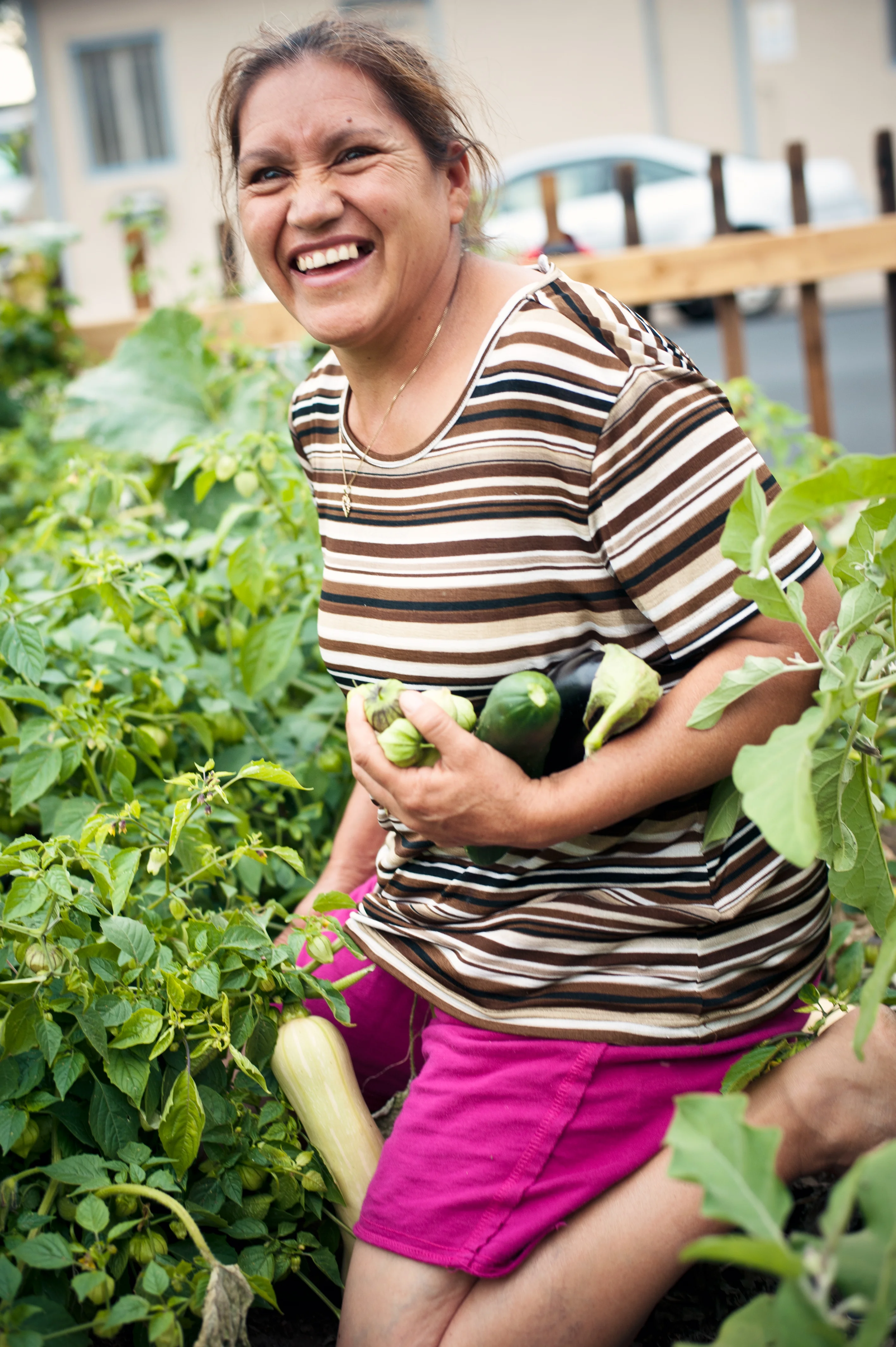
Re:Write
STORIES FROM THE FIELD, PROMOTORA RECIPES, AND CO-OP DEVELOPMENT LESSONS (PLUS SOME POLITICS AND HUMOR, TOO)
Community-owned Cooperative
Since launching Re:farm Denver in Westwood in 2009, we’ve always had the goal of community ownership of the program. No matter how great the short-term impact – currently, Revision is working with 203 families to establish backyard gardens, and over 40 Somali Bantu refugee families to grow food at Revision’s 2 urban farms in Westwood – if the community does not own and control the entire program, then in the long run it will fail. The biggest challenge, however, has been figuring out the financial sustainability. How can we help the community develop the financial capacity to run the program?
In 2012, Revision’s staff and board started discussing the idea of developing a community food cooperative as a strategy to help community families take over the program and its goals of food production, distribution, and increasing economic opportunities for residents. The cooperative business model is particularly appealing as it brings together a group of people to work together to solve their common needs through shared risk and shared reward. This model is all about member-ownership and member-control - exactly what we have been trying to implement in our program. The coop model goes deeper, however, than just benefiting each member. It is an economic model that focuses on building wealth within the community. A cooperative can help solve the deeper root problems that we are addressing by getting to the economic conditions that result in a lack of healthy food and other resources.
The intent is to have the cooperative aggregate, market, and distribute excess food that is being grown in the community through Re:farm Denver (to date, the program has empowered the community to grow 36,000 pounds of organic produce!). The cooperative will purchase produce from them, providing some much needed income, and at the end of the year, if the coop has been profitable, equity or dividends will be distributed to each member based on their contributions to the cooperative. This is creating income and equity at the same time. Each household will have the opportunity to become member-owners of the cooperative.
Additionally, each member of the cooperative gets an equal vote and an equal voice in the governance and decisions of the organization. They elect a board of directors and will periodically directly make decisions that affect the direction of the coop. Through this form of democratic control, people have a say in the type of community they want. This direct involvement is incredibly powerful, particularly for a community that has long been marginalized and made to believe that they have no power.
Over the past 12 months, Revision has been discussing the idea with family members, residents, and other community partners. There is great excitement about the potential economic impact a cooperative business can have on the community. Over the next several months, we will be developing a steering committee, and working with funders and partners to develop a feasibility study and business plan for the cooperative. Stay tuned for updates!
Community-grown Seedlings
During the dark, cold days of winter, we warm up by reading through stacks of seed catalogues and dreaming of the hot summer days ahead! In order to supply our 200 backyard gardens and 2 urban farms, we have to grow approximately 10,000+ seedlings – no small task!
We just finished our greenhouse at Kepner Middle School, so since we needed to start our seedlings before construction was complete, the little guys have been cozy indoors under grow lights. The back half of our office has been converted into a tropical greenhouse (on cold days, you can find staff members warming up over the plants instead of working at their desk!)
This year we are excited to announce our first annual plant and seed sale! Mark your calendars now for Saturday, April 27th and May 4th and 11th – just in time for Mother’s Day. Not only do we use certified organic seed and growing mediums, guaranteeing quality plants that you can trust, but proceeds from our plant sale will support backyard gardens for low-income families!In addition to seeds and seedling transplants, we’ll be designing and selling custom drip irrigation kits for your garden (bring a detailed, dimensioned drawing of your garden along with the distance to the water source with you), and we’ll have Maxfield’s Organics soil amendment products for sale! Make us your one-stop shop for gardening this year.
Fishing Poles
We are all familiar with the well-traveled parable: “Give a man a fish, and you feed him for a day. Teach a man to fish, and you feed him for a lifetime.” But how often do we actually carry this out in the way that we view charity, the way that we approach cycles of poverty both locally and abroad? This may be easy to do on a small scale, but how do we succeed in doing it on a broad scale? And even if you teach a man to fish, he cannot fish without a fishing pole.
We are intentional about teaching people to create their own ‘fishing poles’ – that is, creating the means and resources to provide for themselves and their communities.
Transforming Families, Transforming Communities
In 2009, we began teaching families how to grow food in their own backyard in order to feed their family healthy, fresh, organic food. For most of these families, this is the only way that they can afford to eat healthy, the only way they can feed their children organic produce. We started in the Westwood neighborhood, nestled in Southwest Denver and the home to most of our family gardeners. Westwood is food desert, meaning the residents have no grocery store in their community. This, coupled with their modest economic resources, translates into an unhealthy diet. A 2009 study of the neighborhood found that 76% of adults were either overweight or obese.
From seven families in 2009, to 87 in 2011, our program more than doubled every single year. In return for providing families with the resources and technical support to feed their family, we ask that they pay the gift forward and refer another family to join the program.
In 2012 we helped 168 families learn how to grow their own food and feed their family. Over 90 percent of these families live on less that $15,000 a year – which is abject poverty. But because of our program, over 16,000 pounds of organic produce was grown this year in a community that has zero healthy food options.
But these numbers alone do not tell the real impact that our work has. Based upon data collected from 160 families this year:
- 93% said that they eat more fruits and vegetables
- 94% eat fresher food/less packaged food
- 96% cook at home more
- 84% eat more organic food
- 84% eat less fast food
This data shows that Revision’s model is having an immediate and measurable impact on a community that has the highest rate of obesity in children under the age of 18, in a community where the average household income is 50% less than the average Denver household, and in a neighborhood where this is no healthy fresh food.
The success of this program has been rapid. After 4 short years, we have built a critical foundation for a community to change. We have cultivated leaders from within, offering them a better life and new opportunities. We have helped guide a community to develop their own food system – through the production and distribution of healthy food, and through the education and job creation that encompass it. We are not just growing gardens. We’re growing community. We’re not just cultivating food. We’re cultivating potential.
And we're not content to let it rest at potential. Starting in 2013, Revision will coalesce all the momentum in the neighborhood so far - over 200 gardening families, 2 urban farms, the beginnings of a meaningful food distribution framework, and ever-deepening education - into a community-owned cooperative. This would be a separate entity, owned, led, staffed, and managed by community residents themselves. This cooperative, over a transition period of a few years, will provide economic opportunity, enhance the existing community resources, facilitate the production and distribution of food by, and for, the community, and increase the access to healthy food in a food desert. In 2013 Revision will begin by holding community meetings, recruiting and training a co-op board of directors comprised mostly of residents, and bringing together experts in cooperative development to aid in establishing a sustainable business plan and operating framework.
We'll keep you updated on the progress of the cooperative development throughout the year on this blog, so stay tuned!






